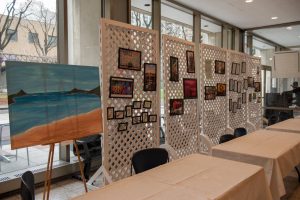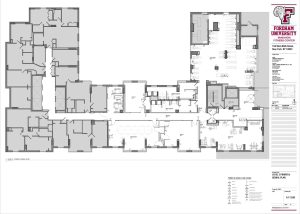Exploring the Peace and Justice Studies Program
One of Fordham’s oldest interdisciplinary programs, PJST, program incorporates elements from different departments
VIA PIQSELS
The peace and justice studies program offers a multidisciplinary approach to investigating topics from human rights to criminal justice reforms.
April 7, 2022
Founded as a certificate program in 1986 before becoming a minor in 2014, the peace and justice studies (PJST) program is one of the oldest interdisciplinary programs at Fordham and still remains relevant today.
The program grew under the leadership of Robin Andersen, former director of the PJST program for 12 years, and the late Astrid O’Brien, former professor of philosophy. It is a part of a variety of Fordham departments, including sociology, political science, environmental studies and philosophy, and explores issues such as human rights and criminal justice reforms.
Sarah Jane Lefebvre, Fordham College at Rose Hill (FCRH) ’21, said that she became a part of the PJST program because it offered an interesting combination of political science and communications.
“These courses have helped students get a more diverse perspective and sophisticated knowledge on world peace and social justice.” PJST annual review
“The courses (of the peace and justice studies program) focused on teaching us to ask questions and to reevaluate the way we look at things,” Lefebvre said. “Students would ask questions that were unrelated, (but) instead of blowing those questions off, the professor would spend a lot of time considering that question.”
John van Buren, professor of philosophy and the current director of the PJST program, said that the program has seen many changes, including the introduction of new courses such as Environmental Justice, and Catastrophe and Human Survival. According to the PJST program’s annual review document for the 2020-21 academic year, the program has seen a significant increase in enrollment from only nine students in 2017 to 25 students in 2020.
“These courses have helped students get a more diverse perspective and sophisticated knowledge on world peace and social justice,” the document stated.
The program, similar to its courses, has seen varied institutional support.
“There was not very much institutional support for (the program),” Andersen said. “The PJST program came about because of a very small, dedicated and growing group of faculty who were willing to work with very little compensation.”
When Andersen retired from her administrative duties to focus more on teaching, the program transitioned to a minor, a decision she felt weakened the program.
“As a minor, I am not sure if the program is as vibrant as it was when it was just a program with a lot of events, teach-ins and panels,” she said. “In being an official minor, it lost a lot of the faculty commitment.”
“The importance of peace and justice studies is where you apply legitimately different principles, different languages, different logic from what mainstream studies often provide.” Robin Andersen, former director of the PJST program
Despite the program’s uncertain beginnings, Andersen noted that PJST is very essential as a subject and a program.
“The importance of peace and justice studies is where you apply legitimately different principles, different languages, different logic from what mainstream studies often provide,” she said.
According to the annual review document written by van Buren, the program’s goal is to offer new courses in the next three to five years in alignment with the university’s plan for PJST to become one of Fordham’s most vibrant flagship programs. The plan intended on reforming existing courses as well as developing new ones. The program would rebrand its “web presence through the new motto A Community of Scholars for Diversity and Reconciliation,” according to the annual review.
One of the new courses in the program, Communicating Revolution, takes into account the media’s role in shaping and creating new societies through revolutions.
Christopher Brandt, an adjunct instructor for the communication and media department, created Communicating Revolution — or, as he described it, “evolution of revolutions.” Brandt said that one of the basic ingredients of revolutionary change is to understand the world beyond one’s own point of view.
“The course tries to give students a chance to change their perspective on certain issues,” he said. “To really get out of yourself and look at this country, for example, from the point of view of a Central America peasant farmer or a teacher in a Mexican school.”
“(The questions) taught me more about thinking critically than any of my classes did at Fordham.” Sarah Jane Lefebvre, FCRH ’21
Lefebvre took Communicating Revolutions in spring 2021, and said it was “wonderful.” In the class, Brandt spent time considering questions raised by students and asked the class to reflect on them.
“(The questions) taught me more about thinking critically than any of my classes did at Fordham,” Lefebvre said.
The annual review document suggested that the program is set to rebrand and new courses are to be introduced. According to the document, the new courses will provide “students with access to the unique opportunities afforded by Fordham’s location in New York City and one of the important centers of diversity movements in the United States.”















